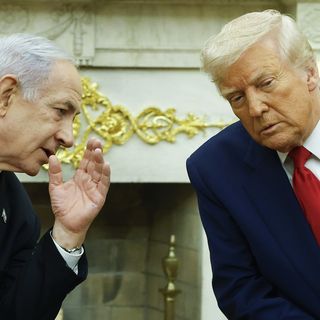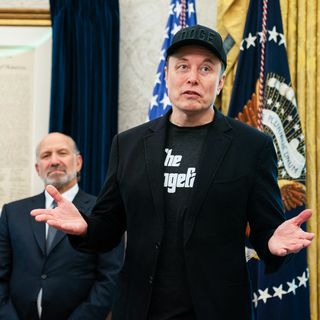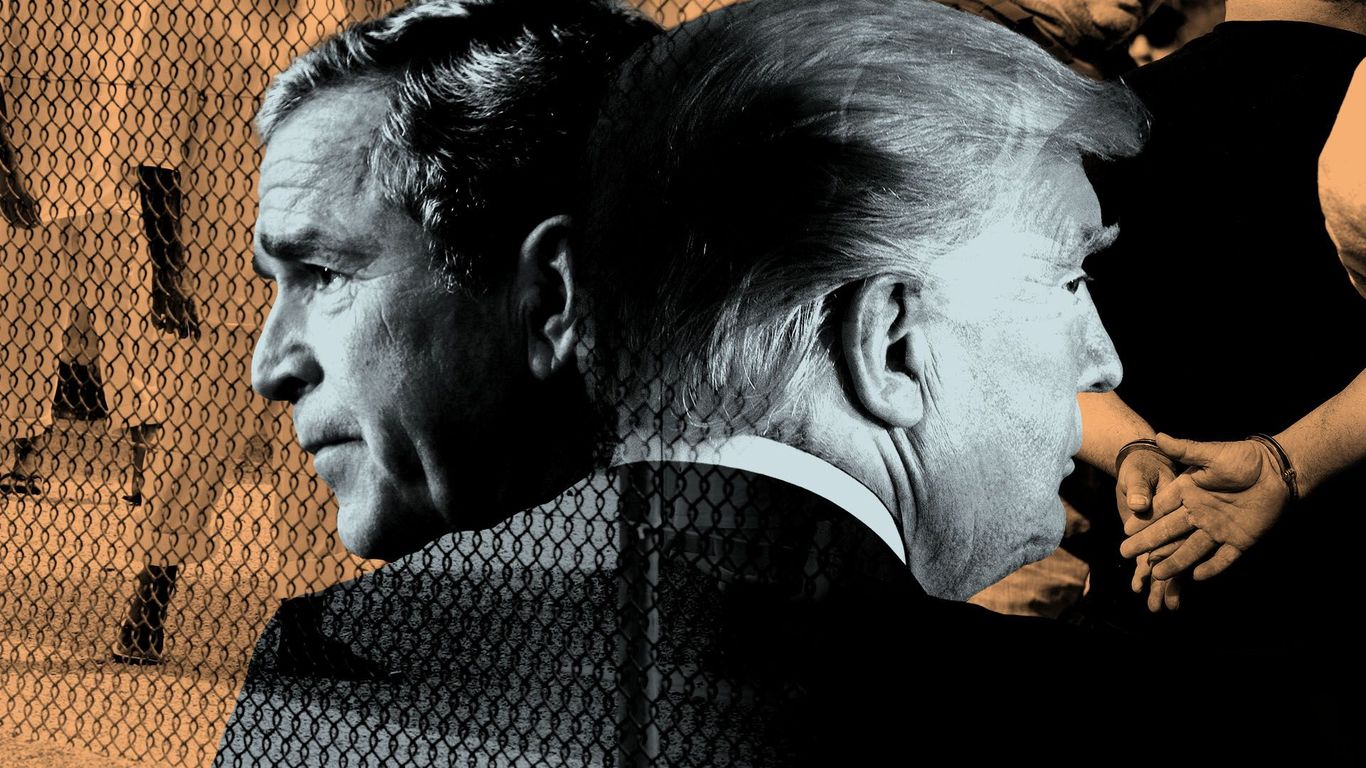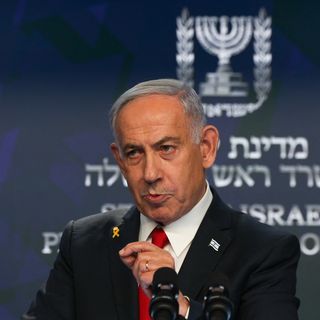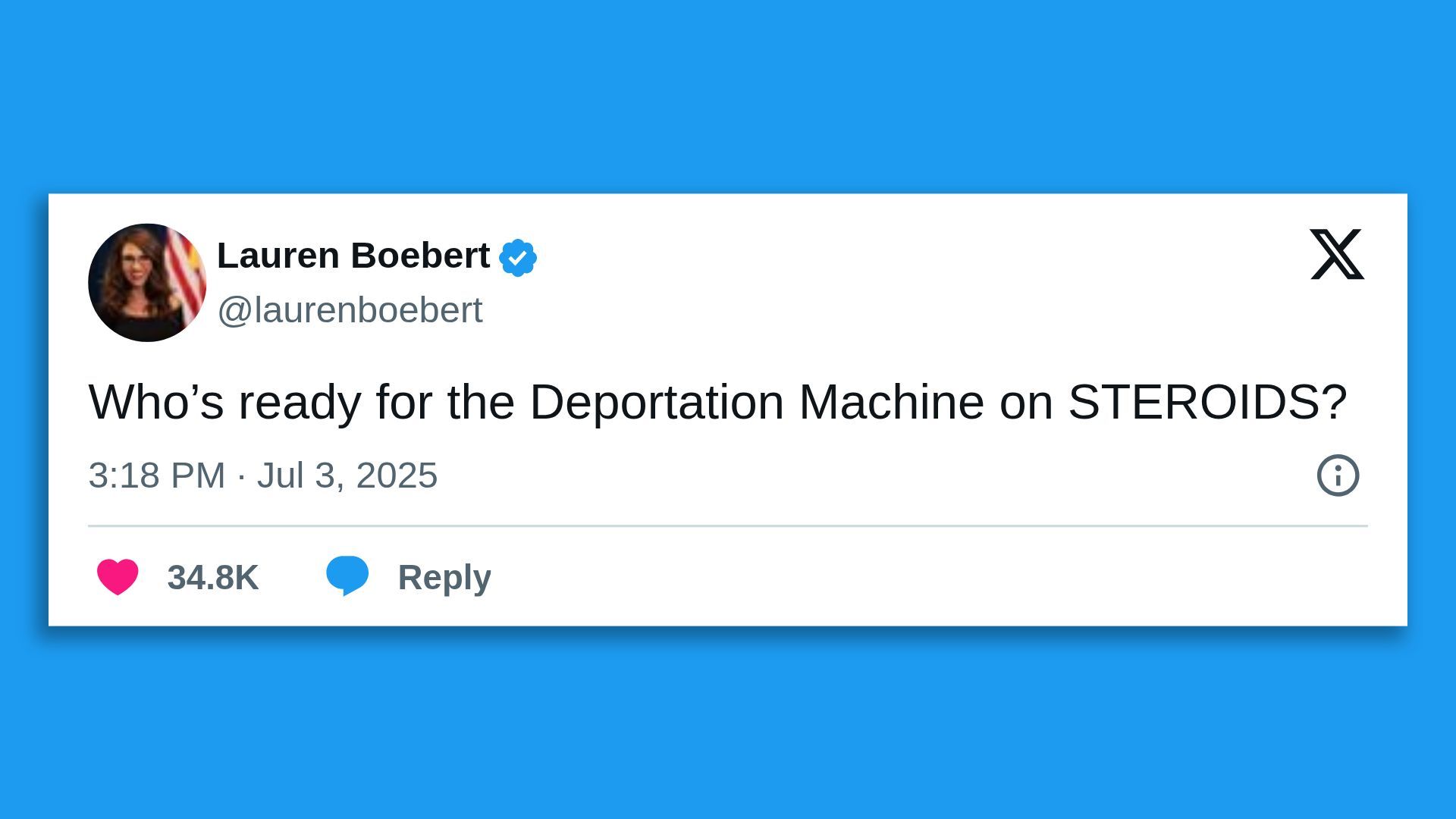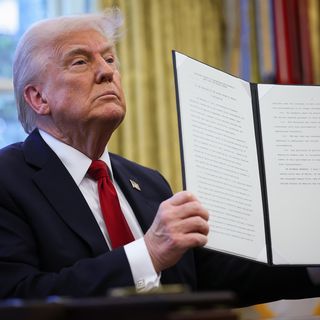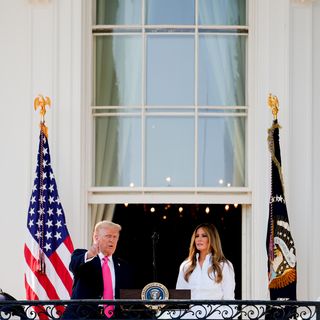Trump hopes to align with Netanyahu on Gaza war endgame during visit
President Trump wants to reach an agreement with Israeli Prime Minister Benjamin Netanyahu in their meeting on Monday on terms for ending the war in Gaza, two U.S. officials tell Axios.
Why it matters: Trump is trying to seize the momentum from the Israel–Iran ceasefire to secure a breakthrough in Gaza this week. After four months of failed talks, there has been fresh momentum in recent days towards a ceasefire deal.
Breaking it down: The deal on the table is a 60-day truce involving the release of 10 live Israeli hostages and 18 deceased hostages. Trump hopes it will be a step toward a bigger peace agreement, though Netanyahu has thus far been unwilling to sign any deal to end the war.
- Negotiators from Israel and Hamas, together with Qatari and Egyptian mediators, met Sunday in Doha to try and reach an agreement on the last sticking points in the ceasefire and hostage talks.
- Netanyahu said before departing Israel that his meeting with Trump could help get a deal across the line.
- Trump told reporters on Sunday that he thinks a deal could be reached this week.
Friction point: If a temporary ceasefire is reached, the post-war situation in Gaza will become the central topic in negotiations during the 60-day truce.
- The U.S. side wants to reach understandings with the Israelis about who will govern Gaza without Hamas, and what security guarantees will prevent the group's return.
Driving the news: Trump and Netanyahu are expected to meet for dinner at the White House on Monday evening.
- U.S. officials told Axios the "day after" issue will be a central topic in the meeting.
- Initial discussions on this issue were held last week at the White House between Netanyahu's confidant Ron Dermer and White House envoy Steve Witkoff.
- A U.S. official said Trump wants to hear Netanyahu's views on the post-war situation and reach a mutual understanding.
- "We want to get an agreement on what comes next. At least a framework on the day after," the U.S. official said.
The other side: Israel has softened its position on the need to send senior Hamas officials into exile as part of a deal to end the war and is now willing to settle for the symbolic expulsion of a few top military commanders.
- "There aren't many senior Hamas officials left in Gaza. We are not going to need a big ship to send them to exile — even a small dinghy will do," an Israeli official said.
- The Israeli official added that Israel demands the dismantling of Hamas' military wing but is willing to consider granting amnesty for hundreds of militants if they lay down their arms.
The big picture: The big political "hot potato" is the question of who will govern a post-war Gaza.
- Both Israel and the Trump administration want to avoid a Hezbollah-like model in Gaza, where Hamas stays as an armed militia even if only underground, while a civilian government runs the enclave.
- "We are determined to ensure that Gaza no longer poses a threat to Israel. It means one thing: the elimination of Hamas' military and governing capabilities. Hamas will not be there," Netanyahu said on Sunday before leaving Israel.
Zoom in: Netanyahu opposes Hamas having any part in governing a post-war Gaza, but also opposes any involvement of the Palestinian Authority in managing the enclave after the war ends.
- Netanyahu wants Arab countries to control Gaza and provide security together with local Palestinian figures who are not affiliated with Hamas or the Palestinian Authority.
- Egypt, Jordan, the UAE and Saudi Arabia oppose this and demand some role for the Palestinian Authority and a clear political horizon for the Palestinians in order to get involved in a post-war plan.
- Countries in Europe and the Arab world are pushing for the day-after plan for Gaza to be part of a two-state solution between the Israelis and Palestinians, but Netanyahu and his government adamantly reject that.
